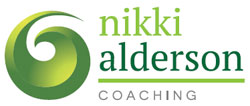Saying “Yes” to prove a point
As a former criminal barrister, practising at Broadway House Chambers for the best part of 20 years, I am all too familiar with the expectations of a profession which can lead lawyers to say “yes” to work undertakings simply to tow the “political” office line. Now, as a specialist coach empowering female lawyers to achieve career ambition whilst creating congruent lives, I understand, and explore with clients, the phenomenon of saying “yes” to things “just to prove a point” and fearing that saying “no” may be interpreted as “not being capable.” For example:
- The pupil barrister who is “first in, last out”, and feels their tenancy in chambers relies in significant part upon them being available and visible throughout the totality of pupillage;
- The junior colleague working towards promotion experiencing the senior partner pushing more and more tasks on to them;
- The associate solicitor taking calls from the CEO out of hours, originally as a means by which to facilitate global conference calling, now rather as a matter of expected out of hours working practice;
- Last minute returns at the Criminal Bar, either far too junior for your level of seniority or a so called “bag of rats” accepted by your clerks from another Barristers’ Chambers which seriously test your usual standards of preparedness and professionalism.
Consider for how long your Approach is Sustainable
Before mastering the art of saying no, examine to what you are (and are not) prepared to say “yes”. At the Criminal Bar, return cases are an unfortunate and unavoidable part of the job, and there is an inevitable amount of flex and spontaneity required, which often results in anti-social working hours. Similarly, as a pupil or associate solicitor, there may be a certain degree of “putting yourself out” to achieve a certain position or promotion. You may feel it is politic to “get on” with some things for a short time. If over time, however, it causes you to suppress your true values and beliefs, you will necessarily come to a point where that approach is unsustainable.
Maintaining your Integrity
Whilst it may be perfectly natural to adopt a professional “game face,” rather like the image of a swan gliding gracefully above the water surface whilst its legs are paddling inelegantly below the surface, if by so doing you risk your own standing, or come into conflict with your own values and beliefs, I caution that you should question your own integrity, particularly if you ever feel tempted to say yes “to prove a point”. To whom are you proving a point? And to what end is this ever necessary? We may all feel some degree of personal challenge by stepping up, but if by doing so you are indefinitely serving the purposes of another individual/ organisation over and above your own, you may benefit from pausing to examine your own values and beliefs and consider whether by doing so, your overall objectives are being compromised rather than met.
Saying “No” as a Source of Empowerment
If you are to learn to say “no” with authenticity, you will benefit from disassociating yourself with the misconception that saying “no” means you are not capable. My experiences demonstrate the opposite. For example:
- I always remember a senior colleague fuming at having been asked by the clerks to take a case far beneath her level of experience and call, which ultimately she refused to do, appreciating it would adversely affect her credibility;
- Similar advice was adopted on my Corporate and Executive Coaching training days. Corporate and Executive Coaching Day Rates are between X& Y. There is an expectation from the client that you charge between this range. If you say “no” and charge any less, then the client will inevitably think less of you. By pricing yourself too cheaply, you risk devaluing your own offering.
Improved Confidence and Communication are Key
If you look back at the times in your professional life when you may have said yes to something to prove a point, being honest with yourself, was this not rather as result of a lack of personal confidence, and an inability to effectively prioritise your own values and objectives over and above your perception of the expectations of the organisation within which you worked? Doesn’t “learning to say no” really come down to improving our own ability to assert ourselves through clear and effective communication? In my experience, only when I became clear about my own values and beliefs and examined what was most important, did I first recognise the power to say “no” was within me. The confidence to use this power when severely tested, (with a case returned late in a Prosecution rape re-trial with papers 3’ deep couriered to my home address at 6.30pm for a clean start the following day with no indictment drafted, no opening note, several complainant DVDs to view, no pagination etc, and whilst 7 months pregnant) and the liberation felt thereby, was as refreshing as it was unexpected.
The Consideration of Values and Beliefs: An Integral Part of Coaching
Looking at values and beliefs is an integral part of coaching.
- Only when you have examined your values and beliefs, and have some clarity around them can you truly understand what it is to be confident in them, and assert them.
- Ask with authenticity “What’s in it for me?” to identify your values and beliefs, and ask yourself does [the task] fit with what you are doing or where you are heading?
Mastering the Art through Practice
From that authentic position, having gained a clear understanding of the expectations of the organisation and yourself, ask yourself “To whose plan am I working?” From there, you can more readily learn and apply the art of saying no: and master it by practice, practice, practice!
Nikki Alderson is a specialist corporate and executive coach empowering female lawyers to achieve their career ambition whilst creating congruent lives. For more information, email nikki@nikkialdersoncoaching.com to arrange a free, no obligation consultation.
Follow me on LinkedIn, Facebook and Twitter by clicking the links below:
https://www.linkedin.com/in/nikkialdersoncoaching/
https://www.facebook.com/nikkialdersoncoaching/?ref=bookmarks

